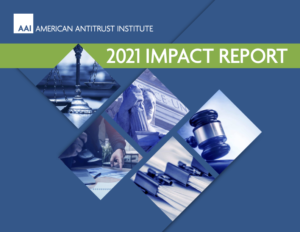AAI President Diana Moss testified on March 1, 2022 at the House Committee on Small Business hearing Competition and the Small Business Landscape: Fair Competition and a Level Playing Field.
In her testimony Link, Moss noted that small business is an integral part of the U.S. economy. But indications that its role is declining poses challenging issues for legislators and policymakers.
She also summarized evidence that decades of weak antitrust enforcement in the U.S. has adversely affected competition and how small business may be implicated in this trend. Moss explained how horizontal and vertical integration that has resulted from sweeping consolidation creates and reinforces high concentration that disrupts the role of small business.
Finally, she discussed how the goals of antitrust often, but not always, align with the interests of small business, highlighting the importance of broader public policy approaches to promoting competition.
The description of the House Committee on Small Business overview is:
“Antitrust laws exist to promote competition and prohibit anti-competitive behavior by large firms. However, the U.S. economy has seen continued concentration among its industries since the 1970s. Although this issue is traditionally viewed through the lens of consumers, consolidated industries can be particularly harmful to small firms and new startups. This hearing will examine the history of antitrust law and the historical importance of encouraging fair competition and their potential impacts on small firms. Members will hear from a variety of experts about competition policy through the lens of American small firms.”






